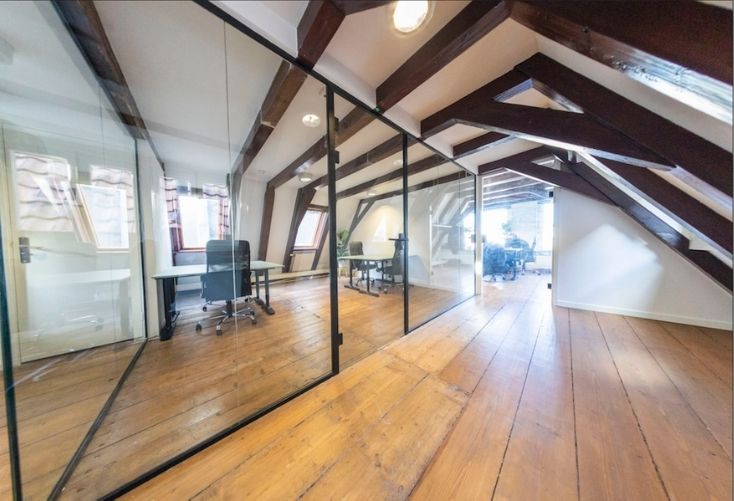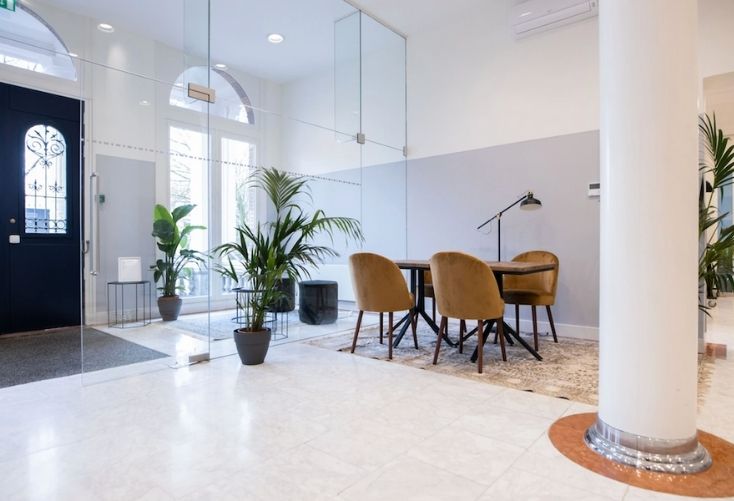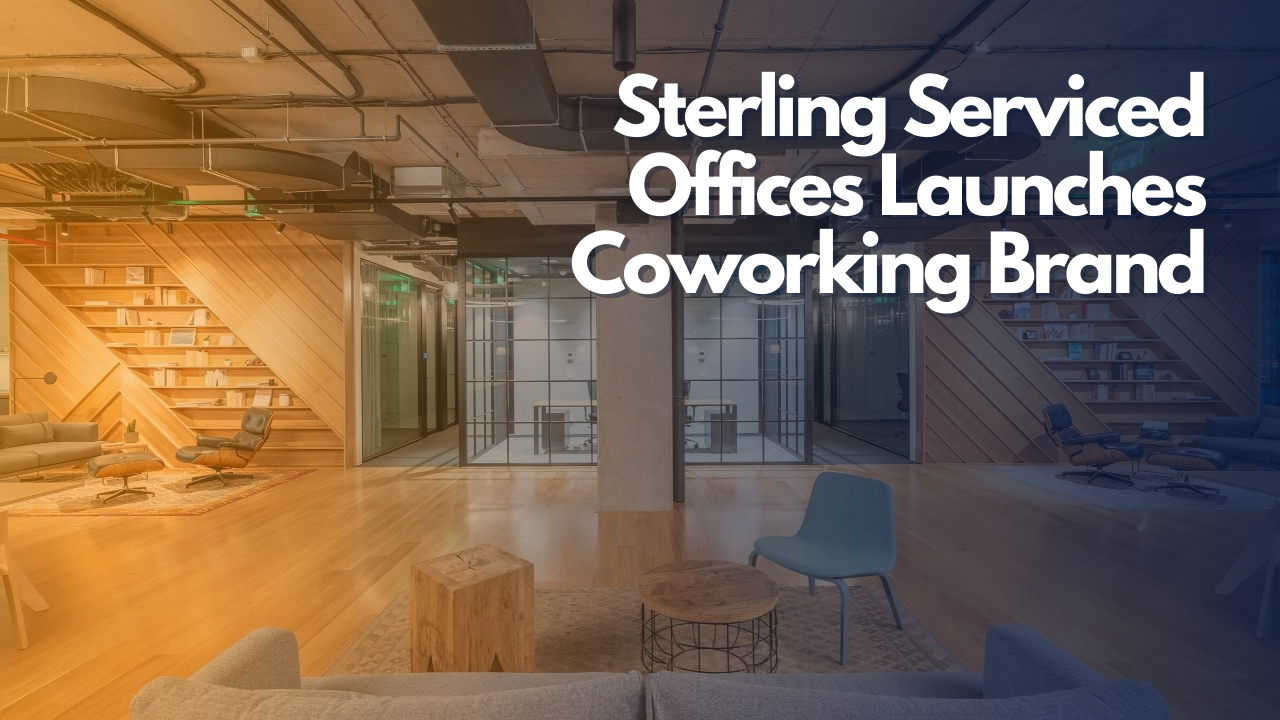- Co-founder Thom Wenke spoke about his experiences gaining funding for three coworking spaces in the Netherlands.
- Thom shared his insights during the Coworking Europe conference, which took place virtually.
- From private loans to seed funding, Thom explained the various finance methods he came across and the pros and cons of each.
We tuned in to a Coworking Europe session in which Thom Wernke, Co-Founder at StartDock, spoke about his experience of funding three coworking spaces — two in Amsterdam and one in Rotterdam.
Coworking Europe is usually held in a different city each year. In 2019 it visited Warsaw and prior to that it took place in Amsterdam.
The annual event provides an opportunity for coworking operators, designers, software vendors and anyone who’s passionate about coworking to meet like-minded people, have a good chinwag and learn a few tricks of the trade along the way.
For obvious reasons, Coworking Europe took place on the virtual stage this year. If you missed it, don’t panic — you can access recordings by signing up to the Hub.

The funding journey begins
StartDock’s first location was just 340 sqm. To get it off the ground, they received a €75K loan from a private investor. At 10%, the interest rate was relatively high.
“The individual didn’t know whether the project would be successful or not, so wanted us to prove we were here to stay,” Thom explained during the workshop.
The loan was for five years and required personal signatures, meaning that if the company failed Thom would’ve had to sell his house to pay back the loan. The stakes were high.
Letter of Intent (LOI)
StartDock also put together a Letter of Intent (LOI), signed by 15 entrepreneurs, to help their cause. Thom explains: “We told them that we wanted to start an initiative to co-work together in a beautiful building in Amsterdam and asked if they wanted to join us.”
Although the loan came with a high level of interest and risk attached, it was coming from a private individual (and not a bank), so the arrangement was more flexible and personal.
If things got challenging, StartDock could approach the lender to figure something out, such as scheduling a repayment for the following month.
“That flexibility was very valuable for us, especially in the first couple of years.”
Since the funds were also coming from one individual, they were received quickly. The investor also acted as a personal mentor to Thom, who admits that it ‘was valuable to have a person who could help us in building the company as a whole.’
Further loans from private investors
StartDock went on to acquire funding for its subsequent locations.
Interestingly, the loans were provided to the individual locations. Each rental contract of a building is established under a separate bv (Limited Company) in order to spread risk.
This means that if one location struggles, the whole company doesn’t come under tremendous pressure. The level of personal risk for the loans that followed the first was lower as they didn’t require a personal signature.
Funding still came from individuals, so Thom and his team had “access to a lot of help and knowledge” to help them accelerate.
For their Rotterdam location, StartDoc decided to go with Rotterdam-based investors in order to leverage their network in the city. “Without the help of the investors we wouldn’t have made it there,” said Thom. “It was a good choice in hindsight.”

StartDock has seven investors in total, all of whom are private individuals “willing to move with us during the good and bad times”. Financial institutions such as banks, on the other hand, wouldn’t necessarily exercise the same level of flexibility.
It’s not always 100% plain sailing though.
Keeping the line of communication going with seven investors can be very time-consuming. Thom has learnt over the years to avoid creating “lots of differences” and to “standardise things so they’re easier to manage.”
Funding future growth
StartDock are setting their sights on further locations. Thom explains that the company has had to lower its costs and raise more funds for growth.
“This drove us to start a seed funding round with the same 7 private individuals that we already had as our investors/loan providers. This was a new process for us: at the beginning we were dealing with loans, now we wanted to sell shares.”
Thom explained that he learnt a lot from a negotiation and valuation point of view.
As many growing coworking operators will attest to, it’s hard to value a company that’s growing rapidly year-on-year but doesn’t have a lot of intrinsic value because the buildings are rented from landlords and re-rented to tenants.
In the end, the investors allowed StartDoc to determine the final value; they believe in the concept and want to grow with it.
Naturally, the level of involvement from the investors is higher now, and “although it cost me a lot of sleepless nights, getting them on board has been worth it!”
Following the transition to the new shareholders, StartDock transferred some of its debt equity and as a result had less operational expenditure month to month.
Crowdfunding
Thom and his team are considering going down the crowdfunding route, as “coworking is about getting people together after all”.
On one hand you can add your investors to your crowdfunding round as well as asking your friends and family, coworking space members and colleagues. On the other hand it can be time-consuming and the interest rates are high (around 8% on average).
SME exchange
StartDock also looked into an SME exchange, which is like a stock exchange but for smaller companies. However, they discovered that the process can be long and bureaucratic.
“In the end you have lower involvement and help from investors as they’re far away, therefore we didn’t think it had a lot of added value for us so we decided not to go for it.”
Bank loans
Bank loans can also make sense for operators, says Thom. StartDock chose not to go down this route because of the risk factor. In times of economic uncertainty, flexibility is preferable.
Bonds are another interesting option and the interest rates can be lower than those attached to traditional loans and crowdfunding.
Finally, Thom highlights the importance of determining your goals when it comes to funding a coworking space. Not necessarily your monetary goals, which are included in your business plan, but how much involvement you want from investors, how quickly you need the funds and how much risk you’re willing to take.
“Things should be fun. Private investors have a lot of experience and knowledge and it can be really fun to work with them!”
Coworking Europe 2021 is set to take place in Vienna. See you there, all being well!



 Dr. Gleb Tsipursky – The Office Whisperer
Dr. Gleb Tsipursky – The Office Whisperer Nirit Cohen – WorkFutures
Nirit Cohen – WorkFutures Angela Howard – Culture Expert
Angela Howard – Culture Expert Drew Jones – Design & Innovation
Drew Jones – Design & Innovation Jonathan Price – CRE & Flex Expert
Jonathan Price – CRE & Flex Expert














